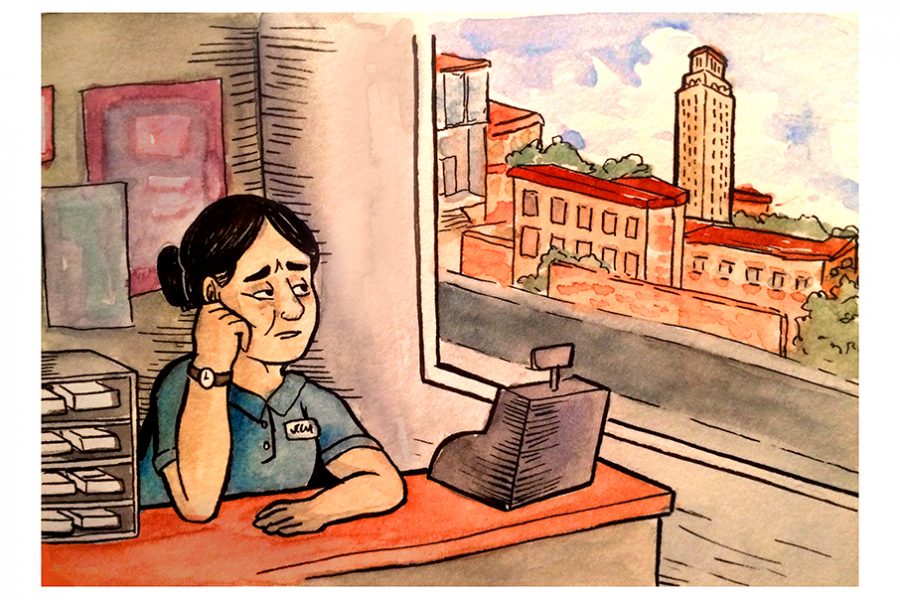Students from underprivileged areas need better transitional programs to assimilate into UT.
A successful college career consists of several unwritten prerequisites. Beyond GPA requirements and ideal test scores, there are less-discussed financial and social barriers that hinder the success of students from underserved areas. Not being able to take part in conventional college activities can decrease student’s incentives to succeed in other ways, making them less likely to interact with other students, teachers and the University culture.
Eri Longoria is a finance senior from Mission, Texas, a city in the south Texas region of the Rio Grande Valley which recently ranked the third-least educated in the U.S. The part of South Texas Longoria hails from is also one of the poorest cities in America, with an average household income of $31,077 and nearly 40 percent of households within the region living below the poverty line.
In stark contrast to Longoria’s hometown, Austin is one of the most educated cities in America, with over double the rate of degree holders and median household income. Underprivileged students who attend UT have financial barriers that can limit their social opportunities.
A study published in the 2004 British Journal of Psychological confirmed financial difficulties increase levels of anxiety and depression as well as affect academic performance of university students.
One option to help underprivileged students assimilate into a college environment is a transitional summer program for underprivileged and first-generation students, such as the one offered at Boston College. The Options Through College program provides resources and information for students who might need extra guidance when starting college and provides a support system made up of other students with similar backgrounds. The program also provides financial assistance in the form of waived housing fees, funded social events and tailored academic counseling for students.
Longoria says coming to UT was a culture shock, for many reasons. He didn’t have the money to take part in quintessential college experiences like everyone around him did.
“I just felt like I was a little bit more different than everyone else,” Longoria said.
Longoria’s attendance at UT is financially dependent on a combination of need-based scholarships and grants but even with outside support, he had to take on a part-time job to make ends meet during school.
“I sit down in a classroom and everyone looks different from me — the way they dress, the way they act,” Longoria said.
Parents of financially disadvantaged college students have little to offer in terms of guidance at college. There are no legacies to live up to, no names to drop and few professional connections to provide.
Although there are programs which encourage underprivileged students to apply to schools like UT, the help stops once the students get in.
Guy Bailey is the first president of The University of Texas-Rio Grande Valley. Bailey, who has also served as president at the University of Alabama and Texas Tech University, said UTRGV students have significant and unique disadvantages compared to students from other regions.
“The biggest difference in Valley students is we have more students here with significant financial need,” Bailey said. “Two-thirds of our students are Pell Grant eligible and that means they can expect low contribution from their families.”
Bailey says these disadvantages aren’t always recognized by universities since they are not directly related to the cost of attendance. However, they highly determine the level of success available for students.
Students from disadvantaged areas who attend schools away from home are even more vulnerable, because the students and faculty around them are less inclined to sympathize with their unique struggles. Universities located in highly educated and wealthy regions like Austin should have transitional programs for these students to assimilate into college.
Thomas is a journalism senior from McAllen. She is an associate editor.





















